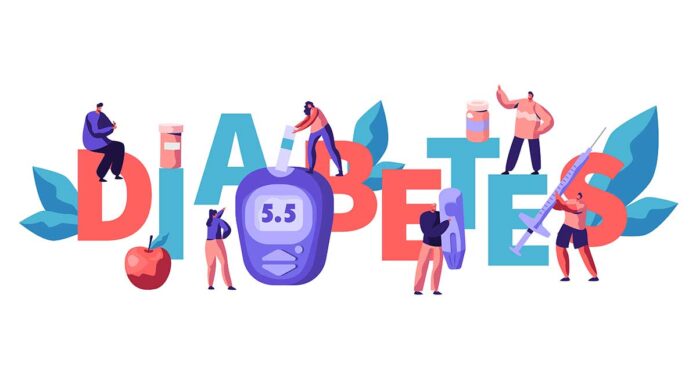Diabetes affects more than 34 million people in the United States – more than 10% of the U.S. population! Diabetes can increase the risk of stroke, heart disease, kidney disease, vision loss, and amputation of a toe, foot, or leg. There can also be high costs to managing this chronic illness, including medications, appointments with specialists, and hospitalizations from complications. Fortunately, there are treatments and lifestyle factors that can reduce the likelihood of diabetes-related health problems and ensure someone with diabetes can live a full and active life.
How can I prevent health complications if I have diabetes?
A helpful way to think about managing diabetes is controlling your “ABCs”: “A” stands for A1C, a blood test that measures your average blood sugar level over the past several months. “B” stands for blood pressure. Controlling your blood pressure is just as important as controlling your sugar with diabetes. High blood pressure increases your risk of heart attack, stroke, and kidney disease. “C” stands for cholesterol, a waxy substance found in your blood. Too much cholesterol can increase your risk of heart attack, stroke, and other health problems.
Why is it so important to manage the “ABCs”?
People living with diabetes have a two to three times higher chance of having a heart attack or stroke compared to those who don’t have diabetes. They also have a higher risk of getting kidney disease. By keeping the ABCs under control, you can help lower your risk of these complications.
How do I keep my “ABCs” under control?
By working closely with your healthcare providers, you can develop a plan to manage your diabetes and monitor your A1c, blood pressure, and cholesterol. This plan may include certain medications as well as lifestyle modifications. Many people living with diabetes take medications daily to control their blood sugar. Medications can help to control blood pressure and cholesterol too. It is important to discuss with your doctor if you can’t afford your medications or are having trouble taking them.

Lifestyle modifications can include being more active, reducing alcohol intake, quitting smoking, and making healthier food choices. Physical activity can include activities such as walking or gardening and should be done for at least 30 minutes 4-5 days a week. Healthier food choices can include limiting meat and fried foods in your diet while incorporating more fruits, vegetables, and whole grains.
What else is important to my diabetes care?
Stress management is important for everyone but is especially important when you have diabetes. During times of stress, our bodies make stress hormones, which makes our blood sugar go up. Stress can also make us eat too much or not enough, avoid exercise, or forget to take medications. Strategies for managing stress include talking to someone you trust, being physically active, taking up a hobby or activity you enjoy, and asking for help from your support networks.
Where can I learn more about managing my diabetes?
The Elder Initiative at the William Way Community Center and the Philadelphia Corporation for Aging (PCA) will be hosting a free six-week workshop on Diabetes Self-Management from November 9th to December 14th. The course is being offered virtually through Zoom and will meet weekly on Tuesdays from 12:00-2:30.
Participants will learn about making healthy eating plans, managing blood sugar levels, working more effectively with healthcare providers, and increasing exercise and physical activity. The course also teaches techniques for dealing with the symptoms of diabetes, including fatigue, pain, hyper/hypoglycemia, stress, and emotional problems such as depression, anger, fear and frustration. Participants will develop action plans to set personalized weekly goals related to the self-management of their diabetes. To register for the Diabetes Self-Management Program, call the Elder Initiative at 215-720-9415 or email [email protected].
Diabetes is a challenging and complicated disease to manage but by utilizing the tools above, advocating for your health, and continuing to educate yourself about diabetes care, you can be an effective self-manager of your diabetes and improve your overall health.
Abigail Green is a doctoral student at Temple University in the Doctor of Nursing Practice program. She is a volunteer with the LGBT Elder Initiative at William Way and is passionate about patient education and community health.
